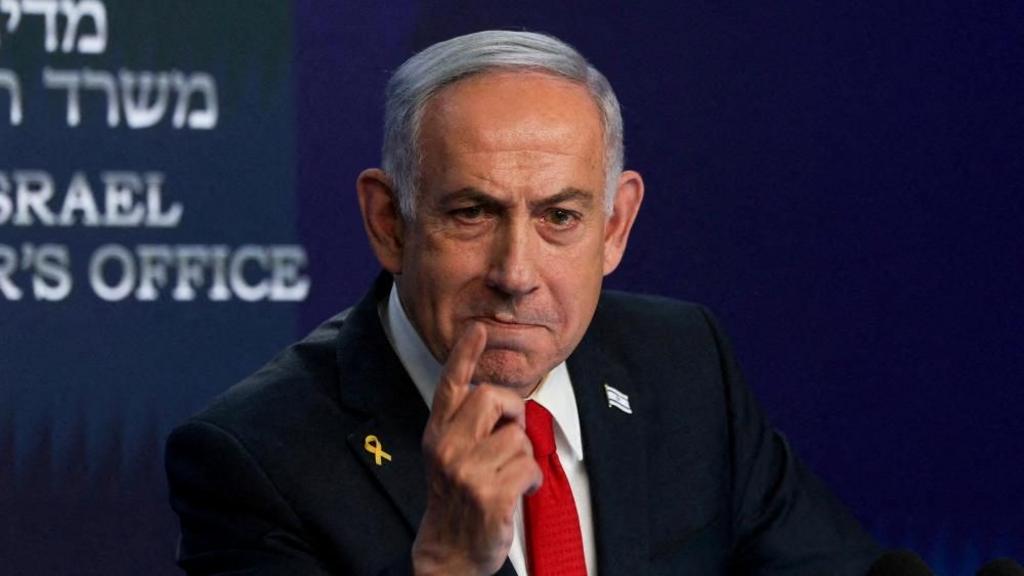“`html
Israeli Prime Minister Benjamin Netanyahu’s plans for a renewed military offensive in the Gaza Strip are drawing warnings from military leadership, objections from families of hostages, and concerns about further Palestinian casualties. The proposed operation also risks isolating Israel on the international stage.
As the security cabinet convened to discuss the proposals, Netanyahu stated in an interview with Fox News that Israel intends to assume comprehensive control of Gaza to ensure its security, remove Hamas from power, and facilitate the transfer of civilian governance to another entity, though he did not elaborate on specific details.
However, he suggested that Israel does not seek to maintain long-term control over the territory.
“We don’t want to govern it,” Netanyahu stated. “We don’t want to be there as a governing body. We want to hand it over to Arab forces.”
While he did not specify potential arrangements or the countries that might be involved, the statement offered a rare glimpse into his vision for post-war Gaza.
In the immediate term, Netanyahu is advocating for an expanded offensive, which would likely involve the Israeli military, which currently claims control of approximately 75% of the territory, operating in Gaza City and the central refugee camps, home to around one million Palestinians and believed to be the location where hostages are being held.
The potential operations, which could span several months, would likely result in mass displacement and exacerbate the existing humanitarian crisis.
Such an operation could trigger renewed condemnation from nations that have already voiced concerns about the situation in Gaza and urged Israel to bring an end to the conflict, which began in response to the Hamas attacks on Israel on October 7, 2023.
Indicating a significant divergence between political and military leadership, Israeli media reports suggest that the army’s chief of staff, Lt. Gen. Eyal Zamir, cautioned Netanyahu that a full occupation of Gaza would be “tantamount to walking into a trap.”
Zamir reportedly warned that the offensive would endanger the lives of the approximately 20 hostages believed to be alive, as well as the lives of Israeli soldiers who are already fatigued.
Many hostage families share these concerns, asserting that a negotiated agreement with Hamas is the only way to secure the release of the hostages.
According to the Maariv newspaper, the “prevailing assessment is that most and possibly all of the living hostages [will] die” during an expanded offensive, either at the hands of their captors or unintentionally by Israeli soldiers.
Speculation surrounding an expanded offensive has also highlighted differences among Israel’s international allies.
The British ambassador to Israel, Simon Walter, stated that a full occupation of Gaza would be a “huge mistake,” while also refuting allegations from the U.S. and Israel that potential recognition of Palestinian statehood by the U.K. would be a reward for Hamas.
Conversely, U.S. envoy Mike Huckabee, a staunch supporter of Israel, asserted that the decision of whether to fully take over the Strip rests with the Israeli government. “It’s not our job to tell them what they should or should not do,” he told CBS News, the BBC’s news partner in the U.S.
Netanyahu has thus far failed to articulate a clear vision for Gaza after the war, beyond rejecting a governing role for the Palestinian Authority, the body that governs the occupied West Bank and recognizes Israel.
Polls indicate that a majority of the Israeli public favors a deal with Hamas to secure the release of the hostages and end the war.
Israeli leaders contend that Hamas is currently disinclined to negotiate, as they believe the group is emboldened by international pressure on Israel.
The threat of a full occupation could be a strategic maneuver intended to compel the group to make concessions in stalled negotiations.
However, many observers believe that Netanyahu is prolonging the conflict to ensure the survival of his coalition government, which relies on the support of ultranationalist ministers who have threatened to withdraw their support if any agreement is reached with Hamas.
Itamar Ben Gvir and Bezalel Smotrich have also publicly advocated for expelling Palestinians from Gaza – which could constitute the forced displacement of civilians, a war crime – and resettling the territory with Jewish citizens.
According to the Hamas-run Gaza health ministry, Israel’s military actions in Gaza have resulted in the deaths of over 61,000 Palestinians.
The Hamas attacks on Israel on October 7 resulted in approximately 1,200 fatalities, and 251 individuals were taken to Gaza as hostages.
Hamas warned that the plan meant Netanyahu was willing to “sacrifice” the remaining Israeli hostages in Gaza.
The MPs say students cannot meet the requirements as there is no visa application centre in Gaza.
The US Department of Justice could also seek the death penalty in the case.
Four commercial trucks were looted in central Gaza along unsafe roads controlled by Israel, private contractor says.
Observers are baffled at how Hamas can pay officials as Gaza is isolated and largely reduced to rubble.
“`

